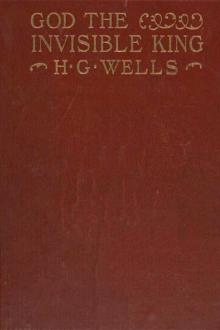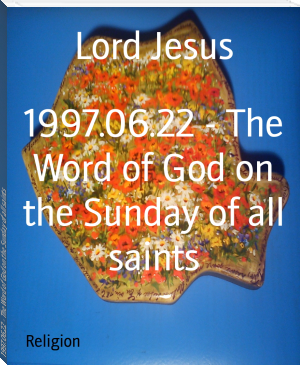God The Invisible King by H. G. Wells (best value ebook reader .txt) 📕

- Author: H. G. Wells
- Performer: -
Book online «God The Invisible King by H. G. Wells (best value ebook reader .txt) 📕». Author H. G. Wells
mits this question because he does not consider that it has any more bearing upon the essentials of religion, than have the theories we may hold about the relation of God and the moral law to the starry universe. The latter is a question for the theologian, the former for the psychologist. Whether we are mortal or immortaea of this book very roughly, these two antagonistic typical conceptions of God may be best contrasted by speaking of one of them as God-as-Nature or the Creator, and of the other as God-as-Christ or the Redeemer. One is the great Outward God; the other is the Inmost God. The first idea was perhaps developed most highly and completely in the God of Spinoza. It is a conception of God tending to pantheism, to an idea of a comprehensive God as ruling with justice rather than affection, to a conception of aloofness and awestriking worshipfulness. The second idea, which is opposed to this idea of an absolute God, is the God of the human heart. The writer would suggest that the great outline of the
Free e-book «God The Invisible King by H. G. Wells (best value ebook reader .txt) 📕» - read online now
Similar e-books:





Comments (0)